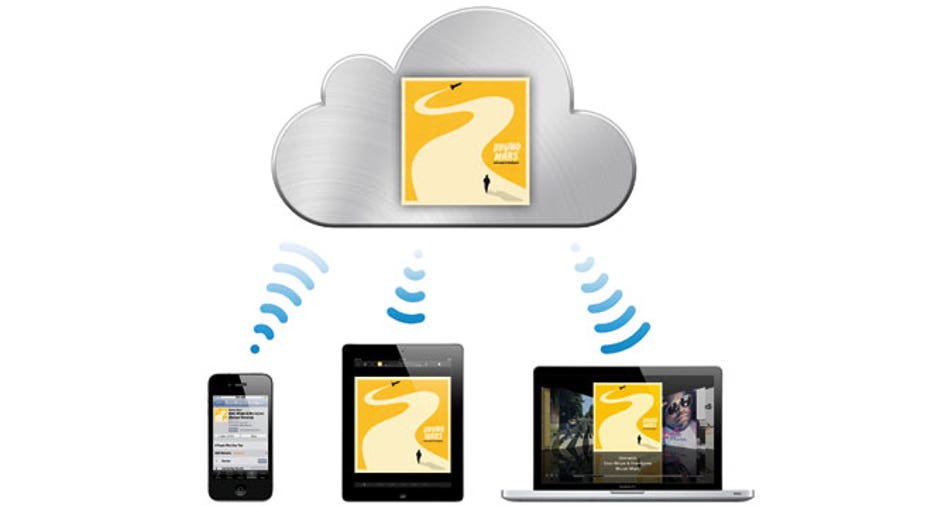How Apple Will Draft Everyone Into the Cloud. Or Else

People have been yammering for years about how, eventually, everything is going to have to move to the cloud. And yet, while some consumers have moved in that direction, many have not.
That's about to change. The introduction of Apples iCloud will create a tipping point that will have a profound impact on consumer software and services.
Like it or not, where Apple goes, everyone else eventually follows. It happened back in the 1980s when Apple introduced the first home computer with a graphical user interface (GUI). Before that, consumers had to use command lines to interact with their computers. But once Apple introduced the GUI, other computer makers soon followed suit.
It also happened with digital music. Sure, MP3s existed before iTunes. But the end-to-end system soon created a tipping point. And it happened with tablets. The hardware industry had been toying with tablets for over a decade before the iPad. But look at the avalanche of tablets that has since ensued.
And so we at Fast Company expect the same to happen with the cloud. Apple has just introduced an attractive system for a whole range of things consumers care about. Sure, cloud solutions previously existed for some of the things Apple introduced Monday--like documents (Google Docs) and music (Amazon). But it is the comprehensiveness and elegance of the iCloud system that will unleash a tipping point.
Soon users will become used to how much easier their lives become with iCloud. All my stuff is everywhere I want it to be, instantly. I download a song from iTunes, and its instantly on all my devices. I put down the book I was reading on my iPad at home, get on the subway, open up my iPhone, and presto, the book is not only on my phone, it opens up to the exact place where I stopped reading on the tablet.
Documents, photos, email, contacts, calendars--users will get used to moving fluidly between all of them on different devices
And as soon as consumers become used to things acting this way, theyll start actually expecting things to act this way. And when that happens, beware any software company that doesnt deliver the same experience. In the new world Apple will create, to ask a user to manually sync files between different devices will be the equivalent, back in the '80s, of asking a bunch of home computer users used to interacting with GUIs, to use command lines instead.
The new will no longer be the cherry on top. It will be the baseline.
Moving to the cloud certainly wont be easy for software companies. It will involve a lot of hard technical work. Many will have to rip apart their existing programs and completely re-architect them to deliver the new experience. Apple itself, CEO Steve Jobs told developers at the WWDC keynote on Monday, had to rewrite MobileMe, the companys previous stab at syncing across devices, from the ground up to create iCloud.
But as difficult and expensive as that work will be, very soon it wont be optional. The smart companies will be the ones that start moving in that direction sooner rather than later, whether theyre happy about it or not.
This content was originally published on FastCompany.com
 More news from Fast Company: - How Apple's Lion Mauls Competitors And Feasts On Their Ideas For iOS [Video] - Xbox's E3 Secrets Revealed: Voice-Controlled TV, Face-Scanning Avatars, New "Halos," More - A Brief History Of Video Games
More news from Fast Company: - How Apple's Lion Mauls Competitors And Feasts On Their Ideas For iOS [Video] - Xbox's E3 Secrets Revealed: Voice-Controlled TV, Face-Scanning Avatars, New "Halos," More - A Brief History Of Video Games



















